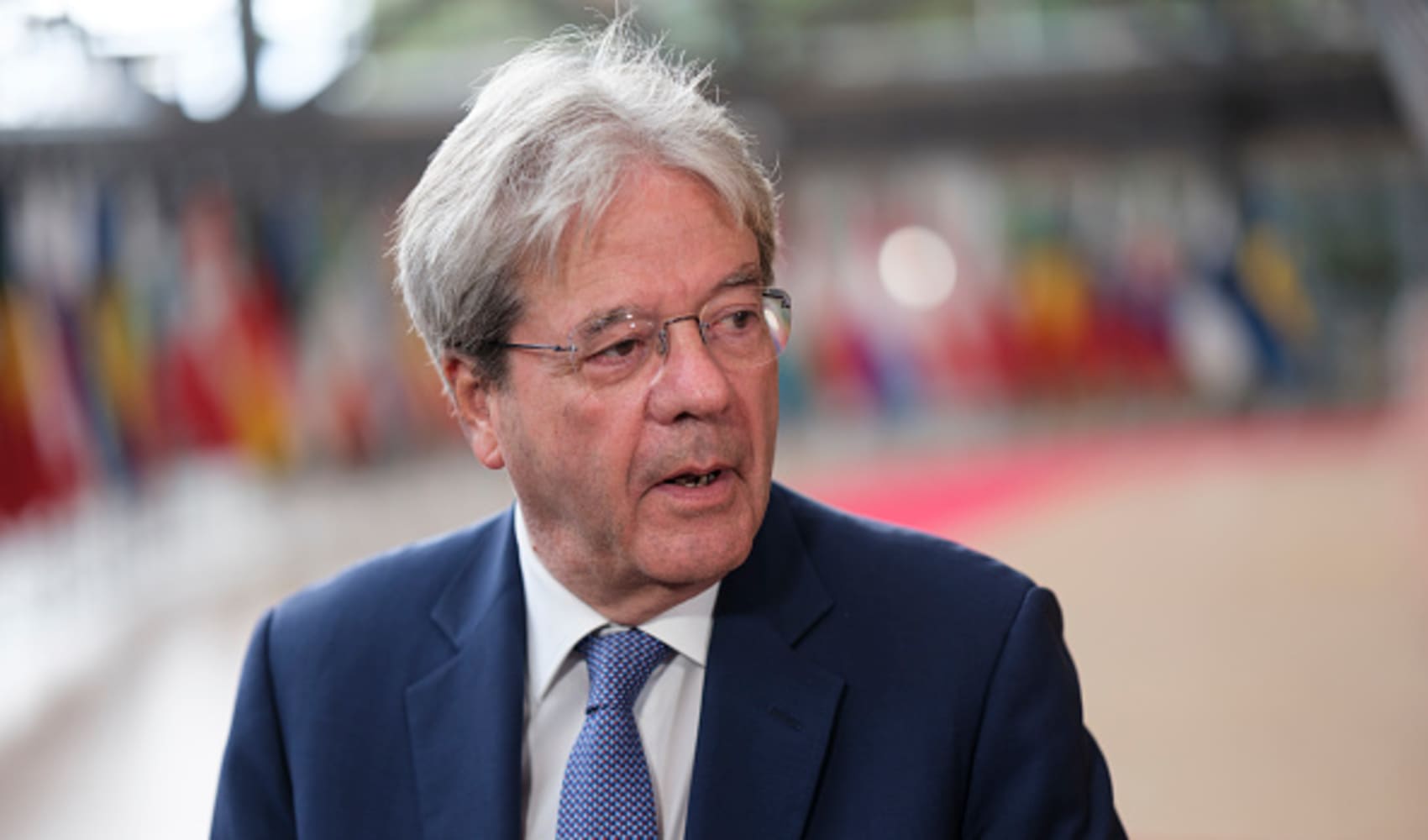
- Taking on trade with China was a major priority of Trump's first term and he appears ready to double down if elected to a second term.
- If he wins the White House in November, Trump is expected to ramp up the trade war and accelerate a trend of decoupling.
- Meanwhile Kamala Harris would be expected to continue the Biden administration's multilateral, more targeted approach to trade policy.
Former President Donald Trump would likely take his trade war and economic decoupling policies to new levels if he were elected to a second term in the White House, experts told CNBC.
While Joe Biden also placed strategic competition with China at the forefront of his economic policy, economists and trade experts largely expect Trump would further cut and destabilize trade relations between the world's two largest economies.
"A Trump victory is highly likely to increase trade and economic hostilities between the U.S. and China, ramping up the trade and financial decoupling between the two countries," said Eswar Prasad, an economics professor at Cornell University.
Get top local stories in Southern California delivered to you every morning. Sign up for NBC LA's News Headlines newsletter.
Trump is widely expected to face incumbent Vice President Kamala Harris after Biden bowed out of the race and endorsed her. According to Prasad and other experts, Harris' approach to China would likely be similar to that of Biden.
While Trump and Biden both took a protectionist stance, their strategies and tactics differed greatly, explained Prasad, who previously served as head of the International Monetary Fund's China and financial studies divisions.
"Trump relied on tariffs to keep out imports from China. Biden — while keeping those tariffs in place and even increasing tariffs on certain imports — has focused more on restricting China's access to technology transfers and computer chips," he said.
Money Report
'Tariff man'
Trump's biggest diversion from Biden-era trade policy would likely be tariffs levied on China.
The self-proclaimed "tariff man" set off a trade war with Beijing during his first term. He placed a series of duties on $250 billion of Chinese imports, disregarding warnings the levies would raise prices and hurt consumers.
After defeating Trump in 2020, Biden retained his predecessor's tariffs and even added his own, announcing stiff new duties on about $18 billion worth of Chinese imports, including electric vehicles, solar cells, lithium batteries, steel and aluminum.
Experts told CNBC they expect Harris to largely continue Biden's tariff policy. Trump, on the other hand, has already proposed increasing rates on Chinese imports by at least 60%.
"I certainly don't know if Trump is willing to pursue such extreme measures, but I do believe that he's likely to increase tariffs to some degree during a second term," said Stephen Weymouth, a professor of international political economy at Georgetown University.
Economist Stephen Roach said Trump raising tariffs in a second term would be the "functional equivalent of the nuclear option" in international economic conflict.
William Reinsch, Scholl chair in international business at the Center for Strategic and International Studies, said the tariffs risk another trade war that would end most goods exchange between the two countries at an "enormous economic cost."
Even if Trump's aim is not a full decoupling but forcing Beijing into negotiating a more favorable trade deal, Reinsch said there's little reason to believe that would work.
The Trump administration reached a "phase one trade deal" with China in 2019, but few terms were honored and subsequent phases never materialized.
Some commentators said Trump picking JD Vance as his running mate further signals the Republican is serious about his tariff plans. The senator from Ohio has been a staunch supporter of tariffs on China, identifying the country as the biggest threat facing the U.S.
"If I was a China policy maker, this selection would have me shaking in my boots," said Arthur Dong, professor of strategy and economics at Georgetown.
Tech war
In contrast, the Biden-Harris administration's key policies focused on limiting China's access to technology transfers and directing domestic subsidies to develop high-tech industries and supply chains in the U.S.
The administration dramatically expanded the list of technologies and Chinese companies subject to U.S. export controls in efforts to cut support to critical tech industries in China, such as advanced semiconductors. The Trump administration had enacted some similar controls.
The Biden administration also announced rules limiting U.S. investment in Chinese firms developing sensitive technologies, citing national security concerns.
In perhaps Biden's biggest move, the administration signed the CHIPS and Science Act in August 2022, putting aside almost $53 billion to invest in domestic semiconductor manufacturing and research to boost U.S. competitiveness with China.
Chris Miller, author of "Chip War," noted export controls and the CHIPS Act were passed with bipartisan support in Washington, and thus, such policies are likely to remain a priority regardless of what happens in November.
"I expect that the U.S. will ratchet up restrictions a notch or two regardless of who wins the election," Miller said.
Diplomacy
A second term for Trump would also impact U.S. diplomacy and dialogue with Beijing beyond trade matters, said Rorry Daniels, managing director of the Asia Society Policy Institute.
She said channels for the two countries to discuss policy issues decreased significantly during the Trump administration, whereas the Biden administration emphasized its diplomatic engagement efforts.
The current administration has also sought greater coordination with "likeminded partners," such as lobbying Japan and the Netherlands to cooperate on semiconductor restrictions.
"That's both helped minimize the blowback of his trade policy actions, while in many ways also making them more effective," said Nick Marro, lead analyst for global trade with the Economist Intelligence Unit, adding he expects any future Democratic administration to retain this multilateral approach.
On the other hand, he said Trump opts for a more "go-it-alone" approach, allowing for a more rapid adoption of U.S. measures on China.
While the Biden-Harris administration's "more measured and cautious" approach to China trade and diplomacy has done more to stabilize the relationship, Marro said he doubts Beijing is excited about either candidate.
"There's this feeling that, regardless of which party sits in the White House, US-China relations will remain on a crash-course throughout the remainder of this decade."
— CNBC's Zenith Wong contributed to this report






